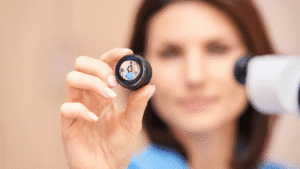Introduction
Sexual health is a crucial aspect of overall well-being, yet it is often shrouded in stigma and misinformation. One topic that frequently flies under the radar is prone masturbation. Whether out of curiosity or habit, prone masturbation is a technique many engage in but few openly discuss. This article aims to shed light on prone masturbation, exploring its nuances, effects, and implications for sexual health.
Understanding Prone Masturbation
What is Prone Masturbation?
Prone masturbation refers to the act of self-stimulation while lying face down, often rubbing against a surface like a mattress, pillow, or even the floor. This technique contrasts with the more commonly discussed methods of masturbation, which typically involve sitting or lying on one’s back and using the hands to stimulate the genitals.
How it Differs from Traditional Masturbation Techniques
Unlike traditional masturbation techniques that primarily involve manual stimulation, prone masturbation relies on friction against an object or surface. This can provide a different sensory experience and may appeal to those seeking varied or heightened sensations.
Common Reasons People Engage in Prone Masturbation
Individuals might choose prone masturbation for various reasons:
- Comfort: Some find the prone position more relaxing or comfortable.
- Enhanced Sensation: The pressure and friction from rubbing against a surface can intensify pleasure.
- Privacy: This method can be more discreet, potentially reducing noise and movement that might alert others.
Physical and Psychological Effects
Potential Physical Effects
Benefits
Masturbation, including prone masturbation, can offer several physical benefits:
- Stress Relief: The release of endorphins during orgasm can alleviate stress and promote relaxation.
- Improved Sleep: Engaging in sexual activity can aid in falling asleep more easily.
- Pelvic Muscle Strength: Regular masturbation can help maintain pelvic floor muscle tone.
Risks and Concerns
However, prone masturbation can also present certain risks:
- Genital Irritation: Friction against rough surfaces can cause chafing or irritation.
- Potential Injury: Excessive pressure or vigorous rubbing can lead to bruising or soreness.
- Sensitivity Issues: Over time, some individuals might develop decreased sensitivity to other forms of sexual stimulation.
Psychological Impact
Mental Health Benefits
Masturbation can positively impact mental health by:
- Enhancing Mood: The release of dopamine and oxytocin during orgasm can boost mood and reduce anxiety.
- Promoting Self-Exploration: Masturbation allows individuals to explore their bodies and understand their sexual preferences better.
Possible Negative Psychological Effects
On the flip side, some may experience negative effects such as:
- Guilt or Shame: Cultural or personal beliefs can lead to feelings of guilt or shame about masturbation.
- Isolation: Excessive reliance on masturbation, particularly prone masturbation, might lead to social withdrawal or difficulties in forming intimate relationships.
Prone Masturbation and Sexual Health
Influence on Sexual Performance
Prone masturbation might influence sexual performance and preferences:
- Adaptation to Pressure: Those who frequently engage in it may become accustomed to the specific pressure and friction, potentially finding it challenging to achieve orgasm through other means.
- Sexual Techniques: Understanding one’s responses during it can inform preferences and techniques during partnered sex.
Impact on Relationships
Communication about sexual preferences, including masturbation habits, is essential for healthy relationships. Being open about it can foster intimacy and understanding between partners, potentially enhancing sexual satisfaction.
Connection to Sexual Preferences and Exploration
It can be a part of broader sexual exploration. By experimenting with different techniques, individuals can discover what brings them pleasure and incorporate these insights into their sexual activities.
Myths and Misconceptions
Common Myths about Masturbation
Masturbation, in general, is surrounded by myths such as:
- Masturbation is unhealthy: In reality, it is a natural and safe activity for most people.
- Masturbation leads to infertility: There is no scientific evidence supporting this claim.
Debunking Misconceptions about Prone Masturbation
Specific to it, misconceptions include:
- Only men engage in prone masturbation: People of all genders can and do use this technique.
- Prone masturbation causes sexual dysfunction: While it might affect sensitivity, it does not inherently cause dysfunction.
Safe Practices and Hygiene
Importance of Safe Masturbation Practices
Ensuring safe masturbation practices is vital for preventing injury and maintaining health. This includes:
- Using Clean Surfaces: Always masturbate on clean surfaces to avoid infections.
- Moderation: Avoid excessive force or prolonged sessions to prevent injury.
Tips for Maintaining Hygiene
Good hygiene practices include:
- Cleaning Genitals Before and After: This helps prevent infections and irritation.
- Using Lubrication: If friction is causing discomfort, consider using a water-based lubricant.
Prone Masturbation in Different Age Groups
Adolescents and Prone Masturbation
During adolescence, it might be more common due to curiosity and the search for privacy. It’s important for adolescents to receive accurate information about sexual health to avoid misconceptions.
Adults and Prone Masturbation
Adults might engage in it for stress relief or sexual exploration. Maintaining a balanced approach is key to integrating this practice into a healthy sexual routine.
Seniors and Prone Masturbation
For seniors, it can continue to provide sexual satisfaction and promote physical and mental well-being. Understanding the body’s changes with age can help in adapting masturbation practices accordingly.
Addressing Concerns and Seeking Help
When to Seek Professional Advice
If it causes physical discomfort, psychological distress, or affects daily functioning, seeking professional advice is crucial. A healthcare provider can offer guidance and support.
How to Approach the Topic with a Healthcare Provider
Discussing sexual health with a provider might feel uncomfortable, but it’s essential. Be honest and specific about your concerns to receive appropriate advice.
Resources and Support Groups
Various resources and support groups are available for those seeking information or help regarding masturbation practices. These can provide a safe space for discussion and learning.
Prone Masturbation and Cultural Perspectives
How Different Cultures View Masturbation
Cultural attitudes towards masturbation vary widely, influencing how individuals perceive and practice it. Understanding these perspectives can help in addressing feelings of guilt or shame.
Cultural Taboos and Stigmas
In many cultures, masturbation is still a taboo subject, leading to misinformation and stigma. Promoting open dialogue and education is crucial in overcoming these barriers.
Improving Sexual Health Education
The Role of Education in Promoting Healthy Sexual Behaviors
Comprehensive sexual health education can empower individuals to make informed choices and promote healthy sexual behaviors, including safe masturbation practices.
Integrating Masturbation Education into Sexual Health Programs
Incorporating information about masturbation into sexual health programs can demystify the practice and provide individuals with the knowledge to engage in it safely and confidently.
Conclusion
Prone masturbation is a natural and varied aspect of sexual behavior. By understanding its nuances, effects, and safe practices, individuals can incorporate it into their sexual health routine healthily and responsibly. Promoting open discussions about sexual health is essential for reducing stigma and enhancing overall well-being.
FAQs
What is Prone Masturbation?
It involves self-stimulation while lying face down and rubbing against a surface like a mattress or pillow.
Is it Safe?
Yes, it is generally safe, but it’s important to practice moderation and maintain hygiene to avoid irritation or injury.
How Can I Talk to My Partner About Masturbation Preferences?
Open and honest communication is key. Discuss your preferences respectfully and listen to your partner’s views as well.
Are There Any Long-Term Effects of Prone Masturbation?
While it can affect sensitivity to other forms of stimulation, it does not inherently cause long-term health issues.
Where Can I Find More Information and Support?
Healthcare providers, sexual health educators, and online support groups can offer valuable information and support regarding masturbation practices.




